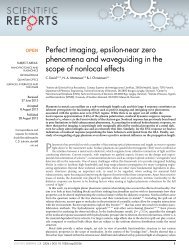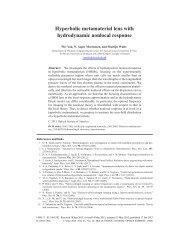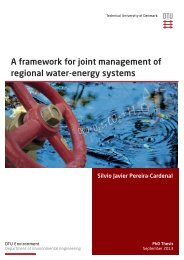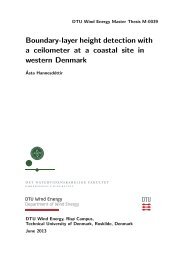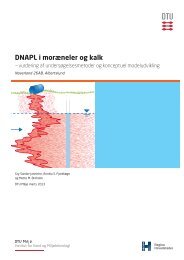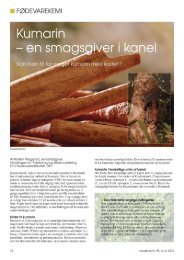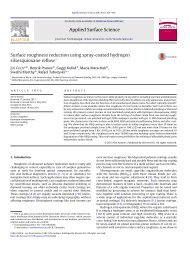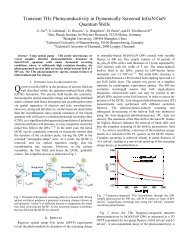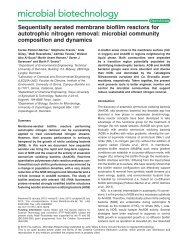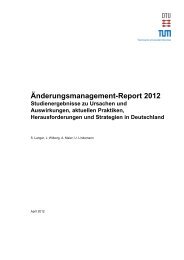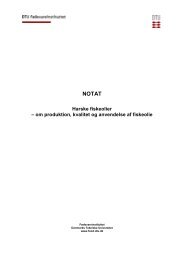PEC12-25 CAPEC-PROCESS Industrial Consortium ... - DTU Orbit
PEC12-25 CAPEC-PROCESS Industrial Consortium ... - DTU Orbit
PEC12-25 CAPEC-PROCESS Industrial Consortium ... - DTU Orbit
You also want an ePaper? Increase the reach of your titles
YUMPU automatically turns print PDFs into web optimized ePapers that Google loves.
industry and work is carried out at three levels, namely: laboratory scale experimental<br />
process evaluation; model based evaluation of process technology and pilot-scale process<br />
validation. Two demonstration units operate in the pilot facilities (both for immobilized and<br />
soluble enzyme reactions at 10-20L scale). Using the results from work at the three levels<br />
enables new technology and processes to be evaluated both experimentally and also from<br />
the perspective of implementation, including eceonomic and environmental evaluation. The<br />
research is divided into 6 research area:<br />
Main research areas:<br />
1. Micro processes – the development of miniaturised unit operations and processes, both to<br />
collect data rapidly and in parallel of use for modelling and also to develop process<br />
screening tools.<br />
2. Continuous processes – the development of new continuous or semi-continuous<br />
processes form batch. New concepts are developed including the creation of gereic process<br />
plant.<br />
3. Biocatalytic processes – the development of enzymes (and whole-cell) based processes<br />
where high selectivity and mild conditiopns are required. The focus is especially on multienzymatic<br />
and chemo-enzymatic processes. Downstream processing and product recovery<br />
are integrated in all processes.<br />
4. Process intensification and intensified unit operation – development of integrated unit<br />
operations (e.g. ISPR) and methods and tools for assessing new operations and processes<br />
operating at an intensified level.<br />
5. Process Analytical Technologies (PAT) – development of monitoring and control<br />
techniques to allow on-line adjustment of process parameters such that product quality can<br />
be maintained. Particular focus is on the phramacutical industry (where the FDA drive such<br />
changes).<br />
6. Scale translation – development of techniques for predicting scale-up and scale-down of<br />
processes and we as experimental validation.<br />
The <strong>PROCESS</strong> Center is involved in the following large collaborative projects in Denmark<br />
and in Europe:<br />
• Sustainable Biodiesel is a project established in 2008 with the Danish National<br />
Advanced Technology Foundation, <strong>DTU</strong> Management, Novozymes A/S, Aarhus<br />
University and Emmelev A/S. It is focused on developing a new enzymatic route to<br />
biodiesel.<br />
• Towards Robust Fermentation Processes by Targeting Population Heterogeneity at<br />
Microscale is a project established in 2009 with the Danish Council for Strategic<br />
Research, <strong>DTU</strong> Systems Biology, <strong>DTU</strong> Fotonik, Department of Biology (University of<br />
Copenhagen), Department of Biotechnology, Chemistry and Environmental<br />
Engineering (Aalborg University), Crystal Fibre A/S, Fermenco ApS and Foss A/S. It is<br />
focused on characterization and control of the heterogeneity of a population of<br />
microorganisms in a fermentation.<br />
9




